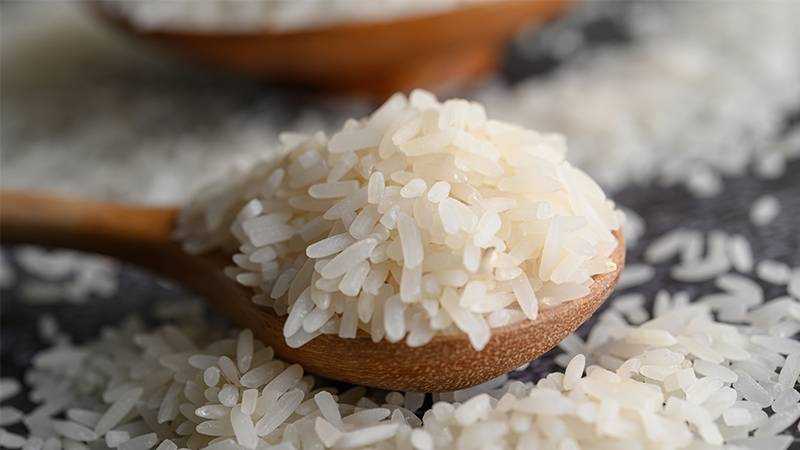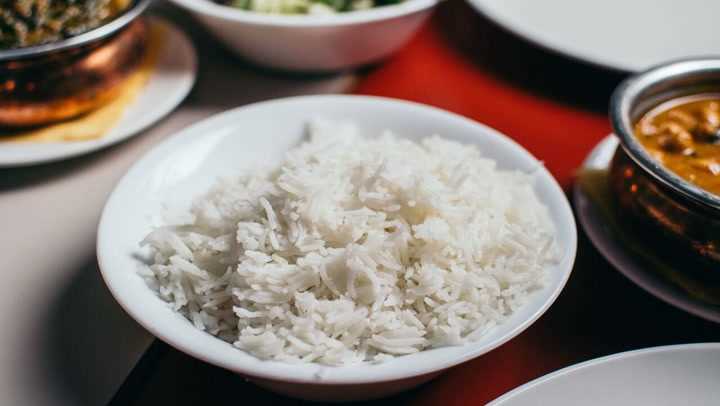If you are wondering whether you can compost cooked rice, the answer is yes! Composting is a great way to reduce food waste and create nutrient-rich soil for your garden. Cooked rice can be added to your compost pile or bin, along with other food scraps and yard waste.
However, there are a few things to keep in mind when composting cooked rice. It is important to avoid adding large quantities of cooked rice to your compost, as it can attract pests like rodents and flies. It is also important to mix the cooked rice with other organic materials, such as leaves or grass clippings, to balance the moisture and carbon-nitrogen ratio in your compost pile.
Additionally, it is recommended to mix the cooked rice into the compost pile rather than layering it on top. This will allow the rice to break down more easily and prevent it from clumping together. Remember to regularly turn your compost pile to provide oxygen and encourage decomposition, which will help speed up the breakdown of the cooked rice.
In conclusion, adding cooked rice to your compost pile is a great way to recycle food waste and improve the quality of your soil. Just be mindful of the quantity you add, mix it with other organic materials, and regularly turn your compost pile. With these tips, you can successfully compost cooked rice and contribute to a more sustainable environment.
Benefits of composting cooked rice
Composting cooked rice has several benefits. Here are some reasons why you should consider composting your leftover rice:
- Reduces food waste: By composting cooked rice, you can prevent it from being thrown away and contributing to food waste. Composting is a sustainable method of disposing of organic materials like rice.
- Nutrient-rich compost: Cooked rice is rich in carbohydrates, which makes it a valuable addition to compost heaps. When rice decomposes, it releases nutrients such as nitrogen and potassium, which are essential for plant growth. Incorporating rice into your compost can result in nutrient-rich soil.
- Moisture retention: Rice has the ability to retain moisture, and this characteristic can be beneficial when added to compost heaps. It helps to retain moisture in the compost, preventing it from drying out too quickly.
- Improved soil structure: Composting rice can improve the structure of the soil by increasing its porosity and water-holding capacity. This can benefit plant roots, as they can access nutrients and water more easily.
- Reduces methane emissions: When food waste, including cooked rice, ends up in landfills, it decomposes anaerobically, leading to the release of methane gas. Composting rice instead of throwing it away can help reduce methane emissions, as composting is an aerobic process.
Overall, composting cooked rice is a sustainable and eco-friendly way to dispose of leftovers while benefiting your garden at the same time. It reduces food waste, provides nutrient-rich compost, retains moisture, improves soil structure, and helps to reduce methane emissions. So, next time you have leftover rice, consider composting it instead of throwing it away!
Composting process for cooked rice
Composting is a natural process that breaks down organic materials into nutrient-rich soil. While many food scraps can be composted, including fruit and vegetable peels, coffee grounds, and eggshells, it is important to understand the composting process for cooked rice.
Cooked rice can be composted, but there are a few things to keep in mind to ensure successful decomposition and avoid any issues. Here is a step-by-step guide on how to compost cooked rice:
| Step | Description |
|---|---|
| 1 | Allow the cooked rice to cool completely before composting. This will prevent any potential issues with bacterial growth. |
| 2 | Break up any clumps of rice to promote faster decomposition. |
| 3 | Add the cooked rice to your compost pile or bin. It is advisable to mix it with other organic matter, such as yard waste or shredded leaves, for better balance. |
| 4 | Ensure that your compost pile is properly balanced with a mix of carbon-rich materials (browns) and nitrogen-rich materials (greens). Cooked rice is considered a green material, so make sure to add enough browns to maintain the balance. |
| 5 | Turn and aerate your compost pile regularly to speed up the decomposition process. This will allow oxygen to reach the microorganisms responsible for breaking down the organic matter. |
| 6 | Monitor the moisture level of your compost pile. Cooked rice can be moist, so it is important to ensure that the pile is not too wet or too dry. Aim for a moisture content similar to a damp sponge. |
| 7 | Continue to maintain and nurture your compost pile until the cooked rice and other organic materials have fully decomposed into nutrient-rich compost. This process can take several months to a year. |
By following these steps, you can successfully incorporate cooked rice into your composting process and contribute to the creation of healthy, nutrient-rich soil for your garden or plants.
What to consider before composting cooked rice
Composting cooked rice can be a great way to recycle and reduce food waste, but there are a few things to consider before adding it to your compost pile. Here are some factors to keep in mind:
1. Mold and bacterial growth
Cooked rice is a high-moisture food that can quickly become a breeding ground for mold and harmful bacteria. This can lead to unpleasant odors and potential health hazards in your compost pile. To prevent this, it’s important to mix the rice with other dry materials such as leaves, shredded paper, or wood chips to balance the moisture level.
2. Rodent attraction
Rice is a food source that can attract rodents to your compost pile. If you have issues with rodents in your area, it’s best to avoid adding cooked rice to your compost. Alternatively, you can bury the rice deep within the pile to discourage rodents from accessing it.
3. Carbon-nitrogen ratio
Rice can contribute to nitrogen-rich materials in your compost, as it is a starchy food. However, it is important to maintain a good balance of carbon and nitrogen in your compost pile. If you are adding a large amount of rice, make sure to add carbon-rich materials such as dry leaves, straw, or sawdust to keep the carbon-nitrogen ratio in check.
Overall, composting cooked rice is possible, but it requires some extra considerations. By following these guidelines, you can successfully compost rice and contribute to the health of your garden while minimizing food waste.
Potential issues with composting cooked rice
Composting is a great way to reduce waste and create nutrient-rich soil for your garden. However, there are certain foods that may present some challenges when it comes to composting, and cooked rice is one of them.
1. Risk of attracting pests
Cooked rice, especially if it has been left out for some time, can attract unwanted pests such as rodents and insects. These pests are not only a nuisance but can also cause damage to your compost pile.
It is important to cover the cooked rice properly with other compost materials to help deter pests. Additionally, turning your compost pile regularly can help discourage pests from taking up residence in your compost.
2. Potential for bad odor
When composting cooked rice, there is a chance that it may develop a foul odor. This can be due to the high moisture content of the rice, which can create the perfect conditions for anaerobic decomposition and the production of unpleasant smells.
To mitigate this issue, it is advisable to mix the cooked rice with other dry and carbon-rich materials such as leaves, straw, or shredded paper. This will help balance the moisture levels and promote aerobic decomposition, reducing the chances of odors developing.
Conclusion: While composting cooked rice is possible, it may come with some challenges. Taking measures to prevent pest infestation and controlling moisture levels can help ensure successful composting of cooked rice.
Alternative uses for cooked rice

While composting cooked rice is not recommended due to potential risks such as attracting pests and causing unpleasant odours, there are several alternative uses for cooked rice that can help reduce waste and provide other benefits.
1. Rice pudding
Cooked rice can be transformed into a delicious dessert by making rice pudding. Simply combine the rice with milk, sugar, and your choice of flavorings such as vanilla or cinnamon. Cook the mixture until it thickens, then serve warm or chilled. Rice pudding is a comforting and sweet treat that can be enjoyed by the whole family.
2. Fried rice
Leftover cooked rice is perfect for making fried rice, a popular and versatile dish. Sauté some vegetables, such as carrots, peas, and onions, in a pan with oil. Add the cooked rice and season with soy sauce, salt, and pepper to taste. You can also add protein like chicken, shrimp, or tofu for a complete meal. Fried rice is a great way to use up any leftover vegetables or meats you have on hand.
3. Rice cakes
You can make homemade rice cakes using cooked rice. Mix the rice with ingredients like eggs, flour, and herbs to form a sticky dough. Shape the mixture into small patties and cook them in a lightly oiled pan until they are crispy on the outside. Rice cakes can be a healthier alternative to traditional potato-based cakes and can be enjoyed as a snack or a side dish.
4. Rice face mask

Rice can also be used in skincare. Cooked rice can be mashed and applied as a face mask to help brighten and moisturize the skin. Rice contains antioxidants and vitamins that can nourish the skin and improve its overall appearance. Simply apply the mashed rice to your face, leave it on for 15-20 minutes, then rinse off with warm water.
These are just a few examples of the many alternative uses for cooked rice. Instead of composting it, consider getting creative in the kitchen or exploring other ways to utilize this versatile ingredient. Doing so can help reduce food waste and save money.
Questions and answers
Can you compost cooked rice?
Yes, you can compost cooked rice. It is considered a green material and is rich in nitrogen. However, it is important to make sure that the rice is plain, without any seasonings or sauces, as these can attract pests and potentially harm the composting process.
Is it okay to put cooked rice in a compost bin?
Yes, it is perfectly fine to put cooked rice in a compost bin. Rice is a great source of nitrogen and will help in the decomposition process. Just make sure that the rice is plain and does not have any added seasonings or sauces.
What should I do with leftover cooked rice?
If you have leftover cooked rice, you can compost it. Rice is a green material, which means it is rich in nitrogen and will provide beneficial nutrients to your compost. Just make sure the rice is plain and does not have any added seasonings or sauces.
Can I add cooked rice to my compost pile?
Absolutely! Cooked rice can be a great addition to your compost pile. It is considered a green material and will provide nitrogen to help break down the organic matter. Ensure that the rice is plain and free from any seasoning or sauce before adding it to the compost pile.






